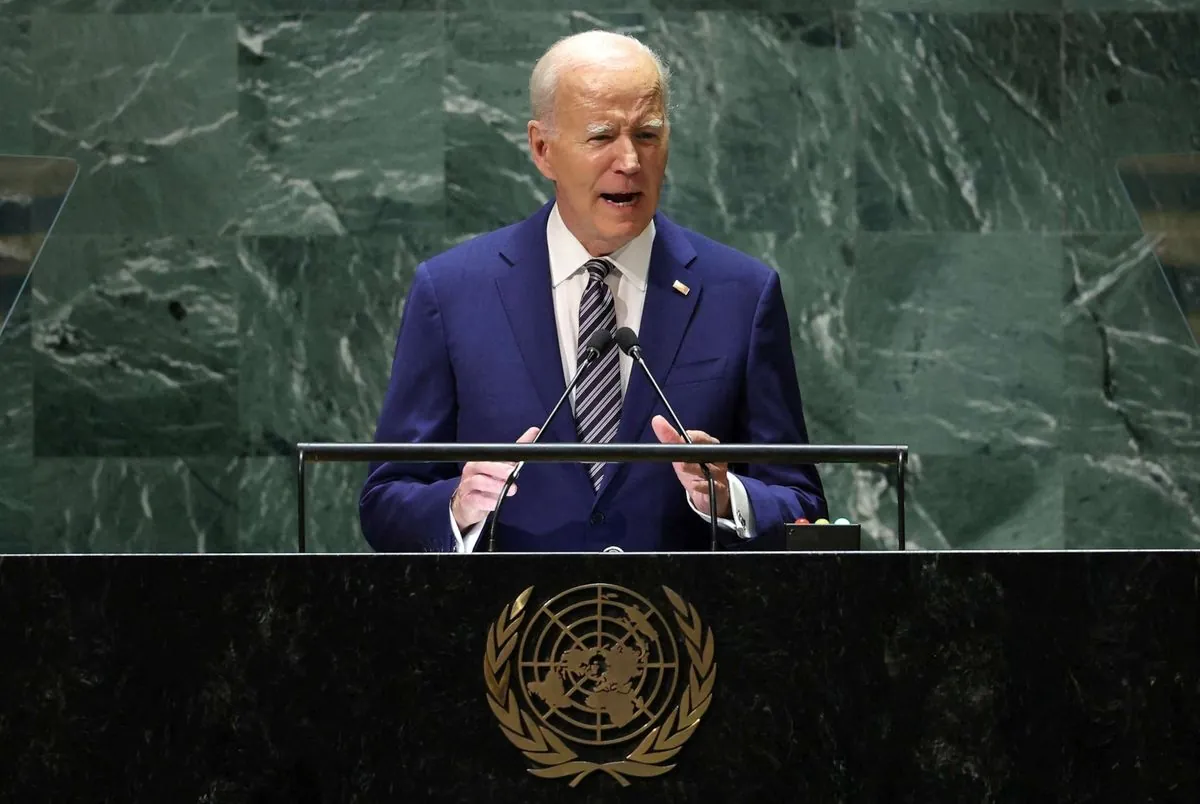President Joe Biden is set to address the United Nations General Assembly on September 23, 2024, as global attention focuses on the escalating tensions between Israel and Lebanon. This annual gathering of world leaders in New York presents a crucial opportunity for the U.S. President to showcase his foreign policy achievements, but the ongoing Middle East crisis threatens to overshadow his efforts.
The United Nations General Assembly, established in 1945, has been a pivotal forum for international diplomacy for nearly eight decades. As Biden prepares to speak in the General Assembly Hall, which can accommodate all 193 member states, he faces the challenge of balancing his administration's accomplishments with the pressing need to address the volatile situation in the Middle East.
One of Biden's key focuses is likely to be the rebuilding of international alliances, particularly in the context of supporting Ukraine following Russia's invasion in February 2022. The President's team has also highlighted his approach to China, with recent high-level diplomatic engagements marking a significant development in U.S.-China relations.
However, the escalating crisis between Israel and Lebanon threatens to dominate discussions on the sidelines of the assembly. The situation has intensified following recent Israeli operations in Lebanon, which resulted in numerous casualties and prompted vows of retaliation from Hezbollah. This escalation comes against the backdrop of the ongoing conflict in Gaza, which began in October 2023 and has led to significant loss of life and a humanitarian crisis.
"Joe Biden, more than most presidents, has a history of foreign policy activity and accomplishments and I'm sure he wants to go out on a high note. But the Israel-Lebanon issue is going to make that very hard to do."
The U.S. administration's strategy has centered on securing a cease-fire between Israel and Hamas in Gaza, a goal that has proven increasingly elusive. This approach was intended to pave the way for a diplomatic resolution to tensions on Israel's northern border with Lebanon. However, recent events have cast doubt on the effectiveness of this strategy.
While in New York, Biden is scheduled to meet with UN Secretary-General António Guterres and host a summit on addressing synthetic drug threats. These official engagements, however, may be overshadowed by informal discussions about the Middle East crisis and its potential for further escalation.
The UN has played a significant role in mediating over 170 peace settlements since its founding, and has passed more than 300 resolutions on the Israel-Palestine conflict alone. As the situation in the Middle East continues to evolve, the international community will be looking to the UN and its member states for leadership and solutions.
Biden's approach to the Israel-Gaza conflict has faced criticism from various quarters, including Arab allies and nations in the Global South. The administration's continued support for Israel, despite mounting civilian casualties in Gaza, has raised questions about the U.S. role in the region and its ability to influence Israeli policy.
As the UN General Assembly unfolds, the international community will be watching closely to see how Biden addresses these complex challenges and articulates his vision for U.S. foreign policy in an increasingly turbulent world.
